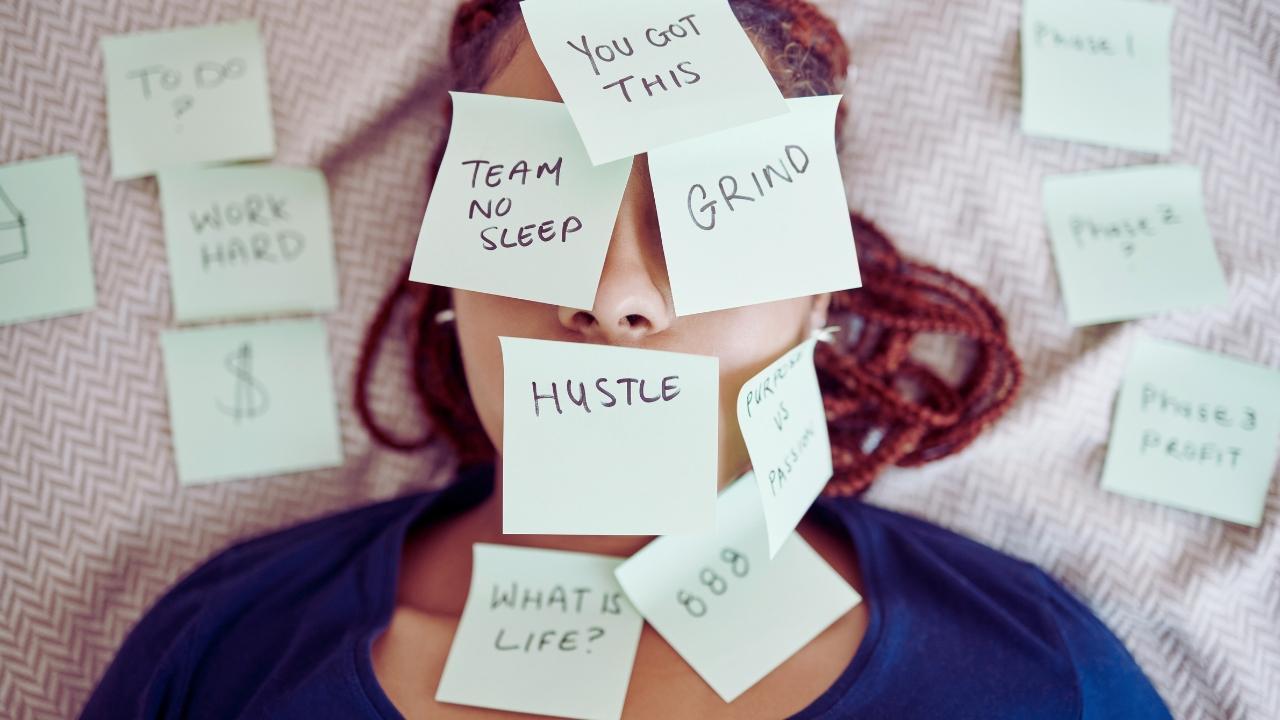You have not yet added any article to your bookmarks!

Join 10k+ people to get notified about new posts, news and tips.
Do not worry we don't spam!

Post by : Anis Farhan
In a world that runs 24/7, disrupted sleep cycles have become the norm. From late-night scrolling to inconsistent work schedules, people are finding it harder than ever to maintain a healthy circadian rhythm. Sleep is no longer just about getting enough hours—it's about the quality, timing, and alignment of rest with the body’s natural patterns. Sleep reprogramming isn’t a trend; it’s a necessity for anyone battling fatigue, mood swings, or brain fog. This article breaks down a comprehensive, real-world guide to help you reset your biological clock—no tech gadgets or pharmaceutical dependencies involved.
The human sleep-wake cycle, also known as the circadian rhythm, is an internal clock that repeats roughly every 24 hours. It is largely governed by environmental cues—most notably, light. Melatonin production, cortisol levels, body temperature, and even digestion are closely linked to this rhythm. When the cycle is misaligned due to jet lag, shift work, or chronic poor habits, the result can be devastating: insomnia, chronic fatigue, irritability, reduced cognitive performance, and weakened immunity.
Modern society has made it increasingly difficult to stick to nature’s clock. Artificial light, blue screen exposure, and inconsistent schedules confuse the brain’s ability to recognize when it’s time to sleep. Sleep reprogramming involves consciously manipulating environmental and behavioral cues to realign your internal clock—and yes, it can be done without expensive apps or wearables.
Before any reprogramming begins, it’s essential to track your current sleep patterns. Keep a sleep journal for 5–7 days, noting:
Time you go to bed and wake up
Time spent awake in the night
Energy levels upon waking and during the day
External triggers like caffeine, alcohol, or emotional stress
This baseline helps identify whether your issue is sleep onset (trouble falling asleep), maintenance (waking up frequently), or duration (not sleeping enough). Each type requires a slightly different reprogramming approach.
One of the most powerful interventions for sleep is waking up at the same time every day, no matter what time you went to bed the night before. This practice helps reset the body’s internal clock. Within a few weeks, your body begins to anticipate this pattern, adjusting melatonin and cortisol release accordingly.
Even if you're sleep-deprived, resist the urge to sleep in on weekends. Your brain thrives on consistency, and any variance longer than an hour can throw off your rhythm.
Light is the most influential cue for circadian regulation. Here's how to use it effectively:
Morning: Get at least 15–30 minutes of sunlight as soon as you wake up. This signals your brain to suppress melatonin and increases serotonin, which converts back into melatonin later at night.
Evening: Dim household lights post-sunset. Use warm-toned lighting and avoid screens 60–90 minutes before bed. If screens are unavoidable, blue light filters or glasses are helpful but not foolproof.
Night: Absolute darkness is critical. Blackout curtains and eye masks can block street lights or hallway light pollution, keeping melatonin levels optimal.
Surprisingly, meal timing plays a significant role in sleep regulation. Avoid eating meals within 2–3 hours of bedtime. Late-night digestion not only keeps your body temperature elevated (which inhibits melatonin) but also disrupts insulin regulation, leading to overnight wakefulness.
Starting your day with a protein-rich breakfast within 30–60 minutes of waking helps regulate cortisol and insulin, anchoring your circadian rhythm effectively.
Your brain needs clear signals that it's time to transition from "alert" to "sleep." A wind-down routine should last at least 30 minutes and involve activities that promote relaxation:
Stretching or light yoga
Reading fiction (not on a screen)
Listening to calming music or white noise
Deep breathing exercises
Aromatherapy using lavender or chamomile
Avoid mentally stimulating activities, including intense conversations, news consumption, or work emails. The goal is to make sleep the next obvious step in your night—not a forced shutdown.
Caffeine has a half-life of about 5–6 hours, meaning a 3:00 PM coffee can still be circulating in your system by bedtime. If you're facing persistent sleep issues, eliminate caffeine after noon.
Alcohol, often mistaken for a sleep aid, is a REM sleep disruptor. It might help you fall asleep faster but reduces sleep quality and increases early awakenings. If sleep is your priority, minimize alcohol and hydrate adequately if you do drink.
Melatonin supplements are best used not as a sleep aid, but as a circadian reset tool. For example:
Jet lag
Shift work adjustments
Transitioning your bedtime earlier
Use a low dose (0.3 to 1 mg) 1–2 hours before the intended bedtime for a few days, not indefinitely. High doses or long-term use can cause dependency and impair your natural melatonin production.
This principle, known as stimulus control, is essential for those who toss and turn. If you’re awake in bed for more than 20 minutes, get up and do something relaxing in low light. Only return to bed when you’re sleepy.
Over time, this retrains your brain to associate the bed with sleep—not with anxiety, thinking, or TV watching. Keep the bedroom cool, quiet, and clutter-free. Consider white noise machines or earplugs if you’re sensitive to ambient sounds.
Sleep reprogramming isn’t an overnight fix. It requires consistency for 10–14 days before you begin noticing solid changes in sleep onset, depth, and morning alertness. Use your sleep journal to spot patterns, improvements, or setbacks.
Resist the urge to give up if the first few nights are rough—your body is adapting. Also, avoid naps during this period as they may interfere with nighttime sleep pressure unless absolutely necessary.
If after three to four weeks of consistent application, you still:
Can’t fall asleep despite exhaustion
Wake up at the same time nightly
Sleep less than 5 hours most nights
…it may be time to consult a sleep specialist. Conditions like sleep apnea, restless leg syndrome, or chronic insomnia may need medical intervention.
Sleep is a foundation of physical, mental, and emotional health. Like nutrition and movement, it requires intentional effort and strategic adjustment. Reprogramming your sleep isn’t just possible—it’s one of the most powerful lifestyle changes you can make.
This article is intended for general informational purposes only and does not constitute medical advice. Always consult a licensed healthcare provider before making changes to your sleep regimen, especially if symptoms persist or worsen. Newsible Asia is not liable for any consequences arising from the use of this content.










Sumo Rocked by New Bullying Scandal as Terunofuji Admits Abuse
Retired grand champion turned stablemaster reports himself to authorities for violent conduct toward

Son of Oil Tycoon Riza Chalid Sentenced to 15 Years in $17 Billion Corruption Scandal
Jakarta Corruption Court convicts Muhammad Kerry Adrianto Riza in high‑profile Pertamina graft case

Marina Bay to Celebrate Disney Adventure With Fireworks & Fun
UOB Marina Bay Sands & Singapore Tourism Board join Disney Cruise Line for a 2-month nautical celebr

Rashmika Mandanna and Vijay Deverakonda Tie the Knot in Grand Udaipur Wedding
The beloved actors celebrated their Telugu and Kodava heritage with traditional ceremonies at ITC Me

Raja Ampat Welcomes Back Endangered Zebra Sharks
Scientific collaboration and community education drive rare species repopulation in the Coral Triang

Tomorrowland Thailand Set for Full‑Scale Asian Debut in December 2026
Thailand to host world‑renowned electronic music festival in Pattaya, expected to draw tens of thous